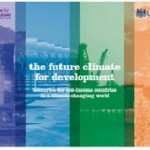
Prague – At the launch of the new publication “Energy Policies of IEA Countries – The Czech Republic 2010 Review” today in Prague, International Energy Agency (IEA) Executive Director Nobuo Tanaka said, “Since the last IEA in-depth review in 2005, the Czech Republic has strengthened its energy policy, further liberalized its electricity and gas markets and made laudable efforts to enhance oil and gas security.” Referring to the draft State Energy Concept and the draft Climate Protection Policy issued for public consultation in 2009, he added, “The government has a unique opportunity to develop coherent and balanced energy and climate strategies.”
“Energy security is at the core of Czech energy policy,” noted Mr. Tanaka highlighting, in particular, the progress achieved in improving the security of its gas supply. He also mentioned the laudable developments in liberalizing the Czech electricity and gas markets, driven by EU requirements.
Despite these achievements, ‘Energy Policies of IEA Countries – The Czech Republic 2010 Review’ identifies a number of challenges. While the focus on energy security is praise-worthy, economic efficiency should be another pillar of a sound energy policy. Czech energy policy can be further improved by detailed assessments of economic efficiency and environmental sustainability of proposed actions. Mr. Tanaka noted, “The draft State Energy Concept lacks a certain degree of feasibility and coherence between energy security and climate change policy objectives.”
Despite a significant decline over the last two decades, CO2 emissions per unit of GDP in the Czech Republic are still the second highest in the IEA after Australia. Mr. Tanaka commended the government for the efforts to reduce CO2 and other greenhouse gas emissions, for example through reinvesting the profits resulting from the use of the flexible mechanisms of the Kyoto Protocol in mitigation measures under the Green Investment Scheme. “However, achieving the desired long-term emissions reductions will be challenging and will require comprehensive and well enforced policies,” he warned.
Energy efficiency improvements will be the single most important tool in the short term for reducing emissions, while renewables, nuclear and carbon capture and storage (CCS) also play an important role. Given its heavy reliance on coal, the IEA encourages the Czech Republic to put more emphasis on research, development and deployment of cleaner coal technologies, including CCS. In addition, wider demand-side measures, regional integration in electricity and natural gas markets and optimizing the need for new infrastructure could all help to improve energy security in the Czech Republic while reducing greenhouse gases emissions and enhancing economic development.
To conclude, Mr. Tanaka highlighted the regional dimension of Czech energy policy. The Czech Republic is currently the third-largest electricity exporter in the EU, after France and Germany. The country’s stated objective to maintain this role will have a profound impact on neighbouring countries’ electricity supply-demand balance. The Czech Republic should support co-operation among governments and system operators at the regional level to facilitate cross-border trade and integration of variable renewable energy sources. “Further development of cross-border infrastructure will be necessary for the establishment of regional and EU-wide physical electricity markets,” Mr. Tanaka said. He urged the government to develop a coherent and credible policy framework to stimulate investments in the infrastructure.
Source: IEA Press Release dated October 7, 2010.














